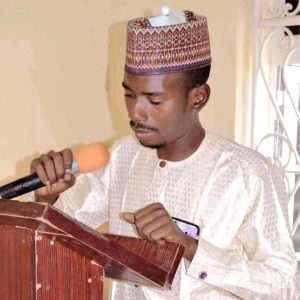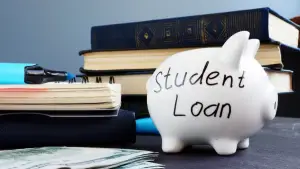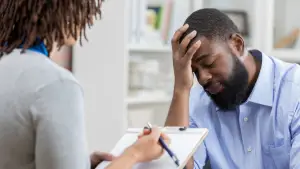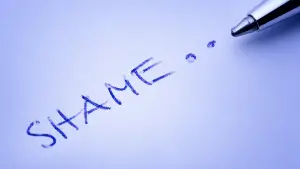Many people look back with nostalgia at the success Nigeria has erstwhile attained in sporting events both nationally and internationally. The nation’s good outing at the 1973 All-African Games where Nigerian came second on the medals table remains evergreen. Nigeria recorded 18 gold, 25 silver, and 20 bronze medals. Also widely notable is Africa’s first gold medal won by Team Nigeria also called “The Dream Team” at the 1996 Atlanta Olympics.

These all seem like a glory etched far away in time unable to be replicated with new characters. Nigeria’s sports sector has experienced a notable decline in recent years. Nigeria’s woeful outing at the 2020 Tokyo Olympic Games where Nigeria, won two medals is still an embarrassing memory. Many reasons have been attributed to Nigeria’s poor outing within and outside the country in recent years.
While the issues are broad, one of the reasons has been penned to the decline in school sports across the country. Sports enthusiasts have decried a dearth in recent years. They say, talents are being lost to the shadows and the country becomes deprived of adequate talents who will represent the country at national and international events.
Coach Simeon is a Games Master at a Government secondary school in Delta State. Every day, he trains a select group of students who make up the school football team. When he closes for the day, he trains a different group of young boys and girls outside the school. In recent years, he has dedicated his time and resources, to training and coaching young student-athletes. He admits that he is not oblivious to the decline in school sports in recent years as he is in the system and feels very much impacted by it.
He does not feel encouraged and supported by the school authorities and the agencies for sports at the education ministry level. He says; “I recently took our team to a competition where I solely sponsored our participation. When we ask for funds, we are told there is no provision for that. I have to get kits for the team. I have no extra kit at the moment because I have shared them all to encourage the players. I mostly result to sourcing for funds elsewhere. I spend so much, especially when the teams are invited for external tournaments.”
Onakpa Emmanuel, a sports consultant and stadium announcer in Lagos, decries a school calendar where sporting activities are not reflected. He points at the lack of game time reflected in the calendar. He noted that secondary school sports for example keep declining because sporting activities like the Inter – house sports are rarely organized. And sports are not added to the school calendar even on Fridays. He decried situations where the students barely go to competitions. He also decried a culture of nepotism in tertiary school sports across the country.
He says; “Here, student-athletes must be selected based on merit. A lot of student-athletes have not had opportunities to practice their skills on bigger and more expository platforms. Student-Athletes that are deserving athletes should be forerunners in representing their institutions. A lot of these students are not given these opportunities as a result of nepotism.” He also emphasized for the overall well-being of students – athletes.
Julius Oviasuyi, a sports enthusiast, opines that there has been continuous negligence by Government at all levels. He says; “The government has been negligent in investing in local sports infrastructure and facilities. Also, students are left to pay for the sporting items they need, thereby leaving them to fend for themselves.
Rebirthing a Sector in Decline
For any feasible change to occur, urgent steps are needed to make it happen. Onakpa, advocates for proper sports administrators in the sector. He says; “Only sports administrators with proven track records should be chosen.”

Glory)
Coach Simeon is of the view that there must be sports reforms if any meaningful change is to be seen. He opines that only through adequate reforms in the sector will school sports in Nigeria get back on track to their glory days. He says he tries to do his best to encourage the student team in different capacities. He takes his role as a coach seriously but insists that it is not enough. He describes himself as just one person doing a lot of work not meant solely for one man. He further says that Government via its agencies in the education sector must take its role seriously by making adequate provisions available.
He says; “They can do more. If they put all these things in place, we will be encouraged. They can make funds available for the various sports events for the year. They can also give scholarships to students so they will be encouraged. Sometimes, my morale is down but I have to soldier on to encourage the students.”
We must also begin to pay more attention to the sporting infrastructure in our schools. Times have changed but it seems we are not moving along to reflect this. Most of the school sports facilities across Nigeria are old and outdated and do not reflect present realities. This view is echoed by Julius. He says; “Government has to invest more in sporting facilities. A lot of the facilities are old. They should also improve on already existing facilities.”
Therefore, adequate changes are necessary so school sports in the country can experience a rebirth. If implemented, we can experience early-stage development of talents, who can be adequately guided to represent Nigeria both at the national and international levels like Tobi Amusan. For now, Coach Simeon continues to soldier on with his school team and student-athletes, hoping that help will come soon.








